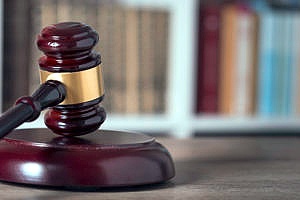 When considering how to responsibly manage an establishment, many property owners often wonder—what is premises liability, and is my property safe enough? Building owners must perform due diligence to ensure that any area that people may pass through is safe.
When considering how to responsibly manage an establishment, many property owners often wonder—what is premises liability, and is my property safe enough? Building owners must perform due diligence to ensure that any area that people may pass through is safe.
If someone is injured on the premises, a property owner may be liable if they have not provided a safe environment. Understanding what constitutes a safe environment in the eyes of the law is important, because it protects property managers from legal liability and keeps visitors and residents from harm.
Providing a Reasonably Safe Environment
Property owners have a responsibility to ensure that the premises that they own are reasonably safe for visitors. This means that any obvious areas of potential danger are remedied. For example, broken staircases must be fixed as soon as they are noticed or reported; uneven carpeting must be replaced immediately in any rooms or units where it is found.
 The concept of “reasonable” remains important in cases of premises liability. If an owner or manager has done everything reasonable to address a problem, they are less likely to be held liable for an injury, even if it occurred on the premises.
The concept of “reasonable” remains important in cases of premises liability. If an owner or manager has done everything reasonable to address a problem, they are less likely to be held liable for an injury, even if it occurred on the premises.
Not every injury that occurs on a property is the responsibility of the property owner.
Examples of Liability
Premises liability occurs when someone visiting the location is injured as a result of being at the location. Some examples of incidents that could prompt a premises liability claim include:
- Animal or dog bites
- Pool safety (e.g., lack of employing a lifeguard, not labeling pool depth correctly)
- Inadequate maintenance (e.g., shrubbery blocking a path or making it harder to use safely)
- Dangerous property (e.g., cracked stairs, drop-offs without railings, unmarked exposed pipes and other tripping hazards)
- Plant buildup (e.g., holes or streams obscured by plants or leaves)
It is the responsibility of the owner or manager to address these problems as soon as they are noticed; it is not the resident’s or visitor’s responsibility to report them first. Part of a property manager’s due diligence is making regular visits around the location to proactively find and fix areas that may be hazardous.
The Principles of Negligence & Comparative Fault
The concept of comparative fault varies from state to state, as some states operate under Pure Comparative Fault and others under the 50 Percent Bar Rule and others. Comparative fault means that the situation is evaluated based not only on the premises owner’s level of fault but also the fault of the injured.
An example of comparative fault is of a person carrying a large, heavy object that obscured his vision causing him to trip over disturbed section of carpet in a hallway. While the property owner is at fault for failing to maintain safe carpeting, the injured is also at fault for blocking his own vision and failing to appropriately look at his surroundings. Pure Comparative Fault means that the damaged party can collect damages even if they were 99 percent at fault.
In contrast, the 50 Percent Bar Rule means that a damaged party cannot recover if they are 50 percent or more at fault.
These laws vary by state. The Brown Firm represents many clients from Virginia, where the state fault law is Pure Contributory Negligence, which means the owner of the premises must be 100 percent at fault or no damages may be collected.
Mitigating Known Risks
 If a property owner or manager is aware of safety risks on the premises, they are responsible for fixing them in a timely manner. A proactive approach is the best way to ensure the safety of both the residents and visitors to the property and the property owner’s interests.
If a property owner or manager is aware of safety risks on the premises, they are responsible for fixing them in a timely manner. A proactive approach is the best way to ensure the safety of both the residents and visitors to the property and the property owner’s interests.
Types of Premises Liability Cases
Additional types of liability cases that are also relatively common include:
- Inadequate security
- Elevator and escalator injuries
- Fires
- Chemicals and fumes
- Water leaks and flooding
- Snow and ice treatment
Some of these liability situations, such as exposure to fumes and proper maintenance and training of security, may be challenging for a property owner to find and fix. A manager may not know that security is improperly handling a situation until someone’s safety has already been compromised.
Call the Premises Liability Legal Team
The Brown Firm excels in breaking down the legal requirements of premises liability into understandable, actionable steps to guide you toward a safer and more robust residence or building safety management structure. If you have an active claim of premises liability, or want guidance to ensure that a property is managed safely and free of any liability for injury, contact The Brown Firm. We would be happy to assist you in coming up with a proactive plan for building safety or crafting a defense in a premises liability case.

